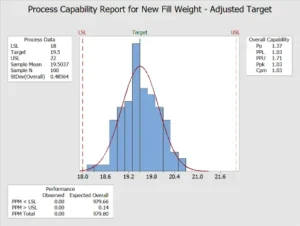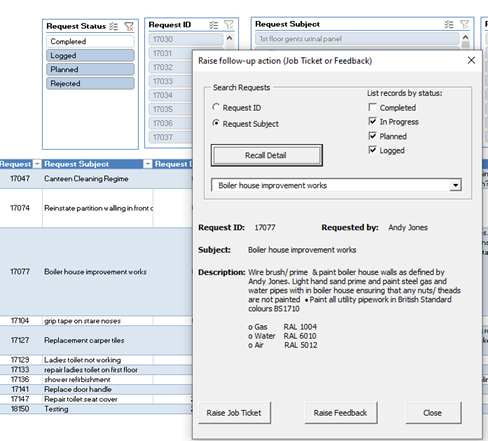CONSULTANCY SERVICES
Animal By-Product Regulations
Animal By-Product Regulations
Lean Management
Lean Management
Statistical Quality Management
Statistical Quality Management
Technical Writing
Technical Writing
DATA SERVICES
Data Analysis
Data Analysis
Excel Data Automation
Data Automation
CONSULTANCY: OUR APPROACH
Focus on your challenge
- Understand the situation
- Identify potential barriers to success
Liaise with The Sponsor
- Clarify priorities
- Present and agree solutions and metrics for measuring success
- Keep informed of progress, and gain input for approval where necessary
Work alongside your team
- Bespoke customer-specific solutions are developed
- Your team is supported through any change journey
- Staff is involved to ensure change is embedded
Deliver the results
- Delivery of outcomes as agreed with the Sponsor
- Ensuring the workforce is equipped to sustain benefits

Consultancy: Animal By-Product Regulations
Animal By-Product (ABP) Regulations lay down rules for the handling, storage, transportation, processing and disposal of animal by-products and derived products. The purpose of the regulations is to prevent and minimise risks to public and animal health, and to protect the safety of the food and feed chain.
Three key pieces of legislation are of relevance in respect to animal by-products and animal derived products:
Regulation (EC) 1069/2009: This Regulation defines health rules regarding animal by-products and derived products not intended for human consumption, and repeals Regulation (EC) No 1774/2002 (Animal by-products Regulation). As it is an EU regulation, it is automatically transposed into Member States legislation and applies to each Member State.
Regulation (EU) 142/2011: This Regulation defines health rules regarding animal by-products and derived products not intended for human consumption by building upon some of the Articles from Regulation 1069/2009. As per Regulation 1069/2009, this is automatically transposed into Member States legislation and applies to each Member State.
Animal By-Products (Enforcement) (England) Regulations 2013 (ABPEE 2013): ABPEE is a domestic piece of regulation that applies to England only. This regulation seeks to build on the requirements of Regulation 1069/2009 and Regulation 142/2011 by ensuring that their requirements can be enforced at a domestic level.

We will work on behalf of our clients to address all animal by-product related matters, and liaise with the Animal and Plant Heath Agency (APHA) to ensure arrangements meet and exceed requirements. We typically undertake the following activities for our clients:
- Applications for registration/approval of Processing, Handling and Storage plants
- Procedures for importing animal by-products and derived products into the EU
- Development of HACCP plans
- Development of Commercial Documents for movements of ABPs
- Audit preparation
- Liaising with the regulatory body (APHA) on behalf of our clients
- Hosting routine APHA inspections
- Assistance in responding to formal notices should this need arise
- Training and staff awareness
Consultancy: Lean Management
In Lean organisations the entire management system is aligned to enable the value stream to function.
Lean management is focused on Purpose, Process and People.
We offer training and coaching in Lean management, as well as practical support during Lean transformation.
Purpose
What purpose is the organisation fulfilling? What value is it creating for its customers? Do the staff actually understand how they are contributing to creating this value? Are there other ways in which the organisation can deliver the value its customer truly seek?
Process
Does the process allow the work to flow i.e. is value added without wasted time and effort? Is the process managed in departmental silos, or is it measured end-to-end? Is the process stipulated top down, or are the people who use it allowed to own and improve it?
People
Developing capability in people is the key. Those who do the work must become empowered to optimise the way the work is done. Managers should be equipped to enable the work, and – whilst doing this – build capability in the workforce.
Consultancy: Statistical Quality Management
Six Sigma is an approach to process improvement which utilises some powerful tools. However, in our experience, many organisations find it difficult to grasp and therefore dismiss the approach, missing out on some tools which are really essential for successful data-driven process optimisation. We offer expert support in selected areas to help clients overcome these obstacles.
- Measurement System Analysis (MSAs). The foundation of data-based decision making is measurement systems that you can trust. A reliable measurement system is one that does not introduce significant error to the results obtained. We help clients perform Measurement System Analyses using Gauge R&R studies to properly qualify measurements systems.
- Capability Studies. Statistically quantify the performance of your process, and build understanding of how the existing process is behaving in relation to acceptable limits. This can help to identify cost saving opportunities that could be secured if the process is made more reliable (i.e. less variable).
- Statistical Process Control Charts. Monitor processes using control charts, and intervene only when the process is actually shifting.


Quality and Six Sigma Training
We offer a course to train delegates in the principles of Quality Management and Six Sigma. The contents are aligned with the American Society for Quality (ASQ) Body of Knowledge for Six Sigma Green Belt Training. It covers the required information to enable delegates to sit the Six Sigma Green Belt Exam to gain accreditation from the ASQ.
The course is delivered through a combination of e-learning (using Minitab Quality Trainer) and all-day training sessions, facilitated by an accredited Six Sigma Black Belt. Download the course outline using the link below.
Consultancy: Technical Writing
Our consultants have a wealth of experience working in management positions across different industry sectors.
We found that clients often appreciate help in creating and documenting robust management procedures. As such, we now offer this as a specific service.
Although we draw on years of cross-industry experience, any procedures developed will be specifically tailored to meet the needs of the individual client. Documents are created in alignment with the client’s Quality Management System and any relevant ISO standards. Examples include:
- Management Procedures
- Standard Operating Procedures
- Odour Management Plans
- Hazard and Critical Control Point Analysis (HACCP) Plan
- Emergency Response Plans
- Traffic Management Plans
- Scrap Management Procedures
We are happy to provide fixed price quotations for work to give piece of mind in regard to cost.
Data Services: Analysis

We offer a data analysis service for clients who require assistance, or wish to outsource this activity.
Analysis to different levels of detail can be performed based on the specific situation:
- Descriptive statistics (mean, median, standard deviation)
- Graphical analysis (run charts, trend analysis, distribution plots)
- Inferential statistics (analysis of variance, hypothesis testing)
Data Services: Automation
Getting meaningful information from your data need not be a labour intensive exercise.
Excel has become increasingly powerful over the last decade, with database functions and capability becoming more integrated in the software.
We create bespoke data automation solutions for clients using features like:
- Table queries
- Pivot tables
- Excel Forms
- VBA Programming
The results are more robust data architectures, and significant reductions in time to analyse or report (from hours, to minutes). This enables you to focus your time on actioning the information as opposed to spending copious amounts of time pulling it together.


